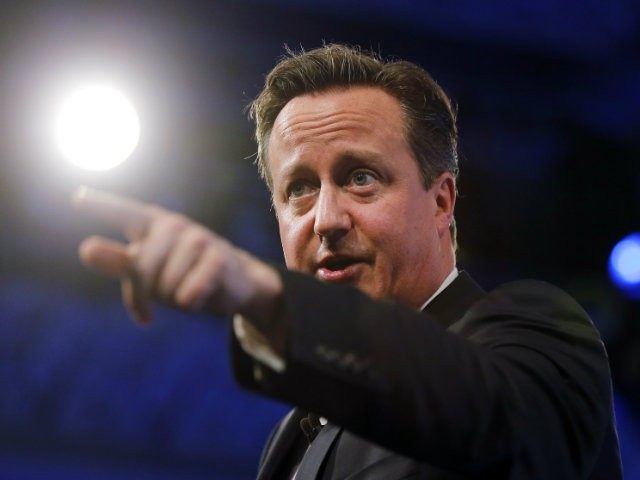British Prime Minister David Cameron opened up a new front in his battle for re-election as he pledged the UK would have the highest employment rate in the G7.
Speaking at a press conference in Ipswich, the Prime Minister committed the government to providing 50,000 business start up loans to add to the 25,000 they have provided already, Bloomberg reported.
But while Mr Cameron declared that “The Conservatives are the party of small businesses” he failed to address the key problems which leave at least half of all small businesses failing within the first few years or the prospect of politically engineered job creation which would be a drain on the tax payer.
Following his speech, free market think tanks were quick to point out that full employment didn’t necessarily mean a thriving economy.
Stephanie Lis, Head of Communications at the Institute of Economic Affairs, said:
“It’s not necessary for the government to aim for full employment. Politicians would do better to remove barriers to entry such as onerous employment regulations and let the market ensure that a maximum number of people are in productive work.
“Fixating over full employment also risks creating too many jobs in certain areas which may lack economic value, and lead to a downturn in productivity.
Calling SMEs the “engine of job creation” Mr Cameron said the Conservatives were “ the party of the roofers and the retailers; the builders and the businesswomen.”
“We’re the ones who back people who strike out on their own, take the risks, and create wealth and jobs in our country. These are people we admire and want to help.”
But it was a mixture of Keynesian economics he pledged his party would implement to rebuild the British economy, promising investment in infrastructure as well as an unqualified offer to cut bureaucracy – huge amounts of which stem from the European Union.
According to Mr Cameron, full employment means that everyone who wants to work has a job. But those criteria fail to address the long term unemployed and the system which permits people to live off state benefits, never seriously pursuing a job to sustain themselves.
OECD figures published today show Britain has an employment rate of 72 per cent in the third quarter of 2014. This puts it below Germany, Japan and China. And despite the bold statement on jobs, the premier admitted there was no target for making Britain top the polls, only admitting that “the ambition is there.”
“We have had a tough few years as a country, but we are coming out the other side,” Cameron said. “We are the jobs factory of Europe.”
Labour were also quick to attack, pointing to statistics which show the number of new jobs created are mainly low paid according to income-tax receipts.
Sadly for free marketeers, the Prime Minister reacted to accusations from Labour’s Work and Pensions spokesman Rachel Reeves that “thousands of working people are being forced to take on a second job because they can’t afford to make ends meet” by saying their should be an increase in the minimum wage.
Such a pledge is contrary to the promises to make life easier for start ups and small businesses and creates an employment gap where people who would be willing to work for a lower wage are legally unable to whilst employers looking to take on new staff can’t afford the higher salaries politicians say they must pay.

COMMENTS
Please let us know if you're having issues with commenting.